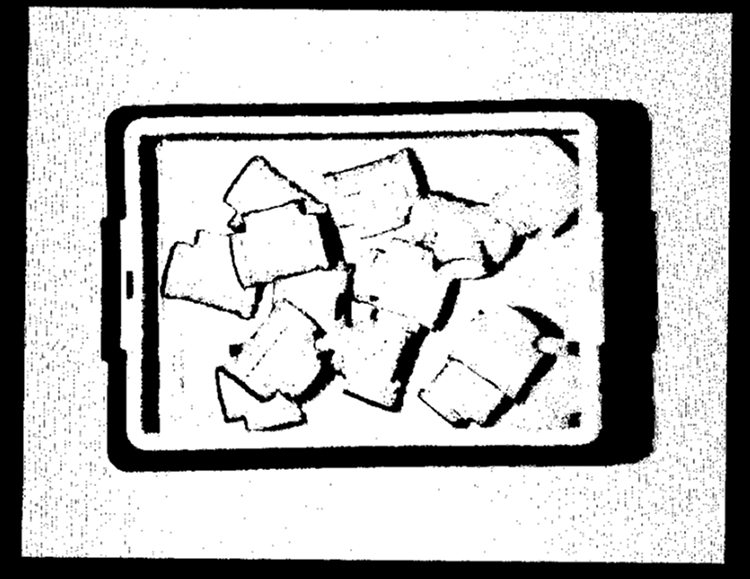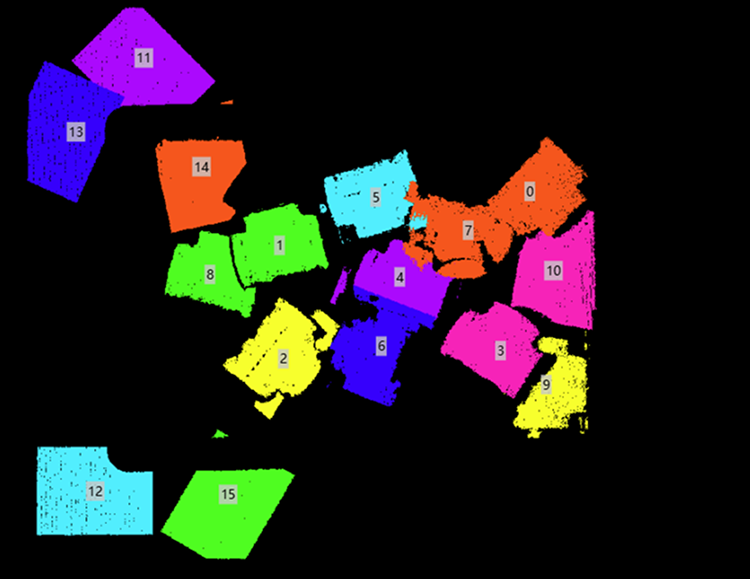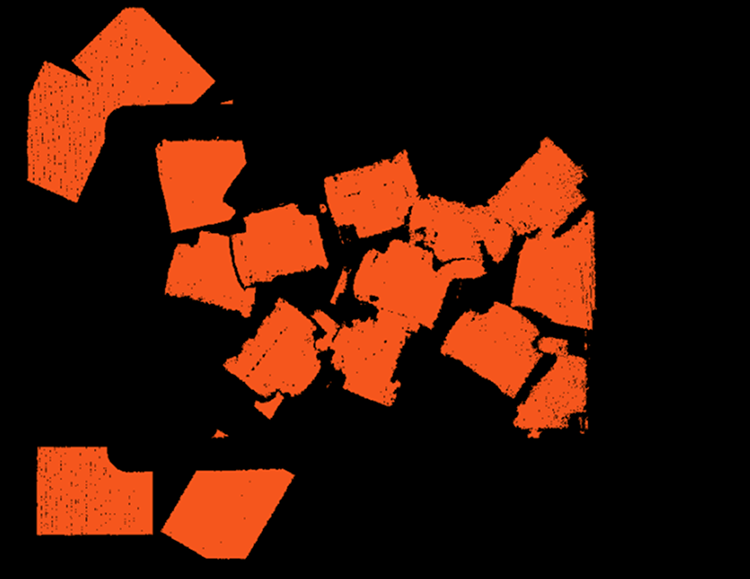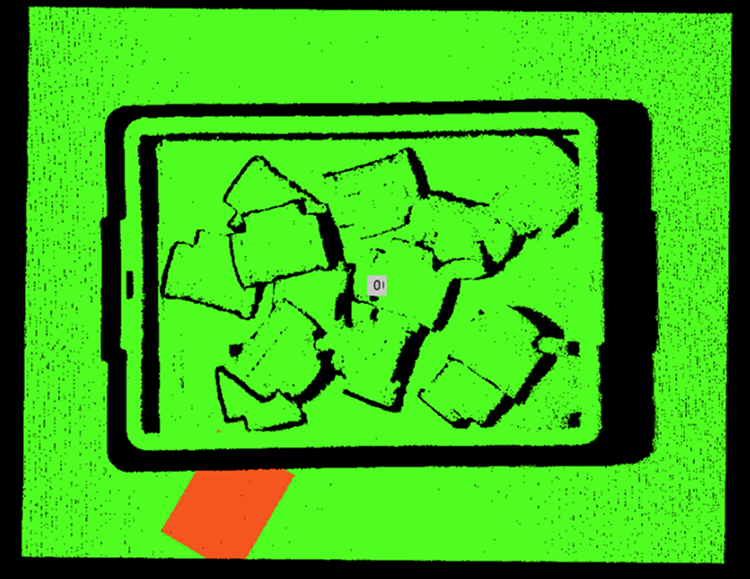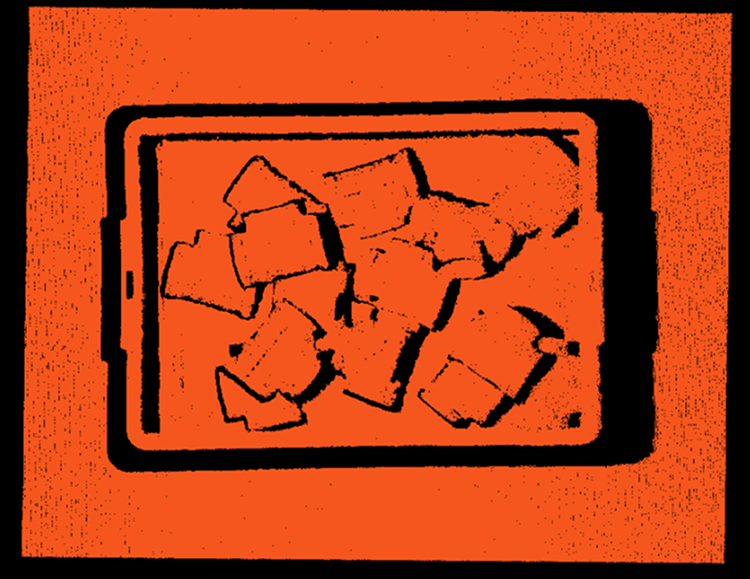🔷Dynamic ROI Generation
Function Description
This operator can define a standard ROI relative to model or scene point clouds, then apply it to all matched model instances.
Usage Scenarios
-
Multi-Target Region Definition : When multiple object poses are obtained through matching or other methods, it’s necessary to define ROIs of the same size and relative orientation for each object.
-
Pose-Based Region Filtering : Based on identified object poses, precisely filter scene point clouds around each object.
Input Output
Input |
ROI Reference Point Pose: Input pose list defining the initial center and orientation of each dynamic ROI. Scene Point Cloud (Optional): Input scene point cloud or point cloud list to be filtered. |
|
Output |
3D ROI: List of dynamically generated ROIs based on input poses and template ROI. ROI Filtered Point Cloud: If scene point clouds are input, outputs point cloud list filtered using dynamic ROIs; otherwise this output is empty. |
|
Parameter Description
|
This operator has two versions:
Both have basically identical core functionality and parameters, differing only in the type of point cloud data processed. |
|
At least provide one valid model file or one valid scene point cloud. If both are missing, an error will be reported and the operation cannot run. |
Model Point Cloud File
Parameter Description |
Specify a model point cloud file (.ply format). If this file is provided, the operator will load it during initialization, mainly used to assist users in configuring "3D ROI" parameters in the interface to match model dimensions. Note: Non-required parameter, the operator doesn’t strictly require this model to exist at runtime, but at least one of input scene point cloud and this model file must be provided. |
Parameter Adjustment |
If you want to define template ROI based on a specific model, select the corresponding .ply file. If no model reference is needed, this can be left unset, but ensure there is scene point cloud input at runtime. |
3D ROI
Parameter Description |
Define template ROI. During runtime, the operator will transform the template ROI according to each input reference point pose to generate final dynamic ROIs. |
Parameter Adjustment |
Besides directly inputting ROI parameters, it’s more recommended to click the "eye" button in the upper right corner of the parameter settings panel to open the view window for visual ROI configuration, which is more convenient and intuitive. |
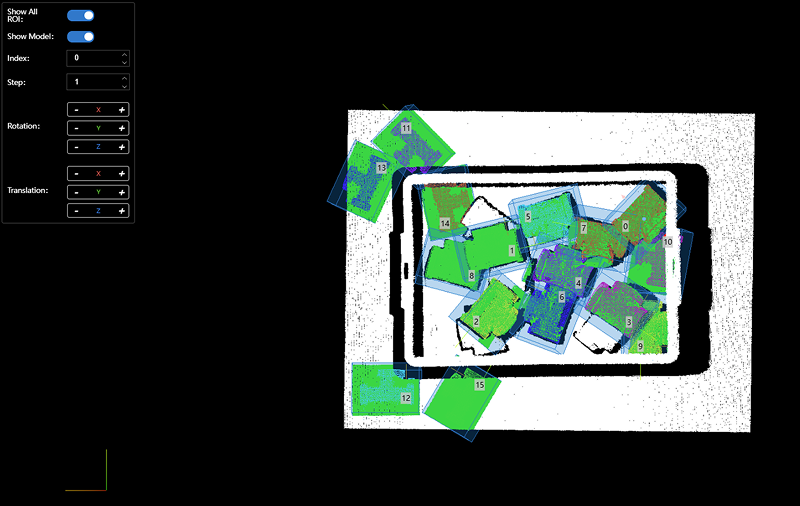
Keep Order
Parameter Description |
Controls whether output point clouds maintain the original structure of input. |
|
Parameter Adjustment |
Disable (Default): Don’t keep order. Output only contains points inside ROI (or outside if reverse is enabled), discarding invalid points, point cloud becomes an unordered point list. Suitable for most point cloud processing scenarios, especially when subsequent steps only process valid point coordinates without needing original structure. Output data volume is usually much smaller than keeping original structure (containing many invalid points), making subsequent processing faster. |
|
Enable: Keep order. Output point cloud shape is the same as input, points falling outside ROI range are marked as invalid points, but they still occupy their original positions, preserving original adjacency relationships between points. Suitable for scenarios where subsequent processing needs to utilize spatial adjacency relationships of point clouds for image processing operations. |
|
|
Keep Original Size
Parameter Description |
Only takes effect when "Keep Order" is enabled and input point cloud has ordered structure. Controls whether to crop rows and columns that are entirely invalid points while maintaining ordered structure. |
Parameter Adjustment |
|
Enable Reverse
Parameter Description |
Reverse filtering logic. |
|
Parameter Adjustment |
Disable (Default): Keep points inside ROI, remove points outside ROI. |
|
Enable: Keep points outside ROI, remove points inside ROI. Suitable for removing interference from specific regions. |
|
|
Multi-ROI Result Splitting
Parameter Description |
Only takes effect when "Enable Reverse" is disabled. Controls how to handle results when the same input point cloud is filtered by multiple ROIs with multiple ROI inputs. |
Parameter Adjustment |
|
